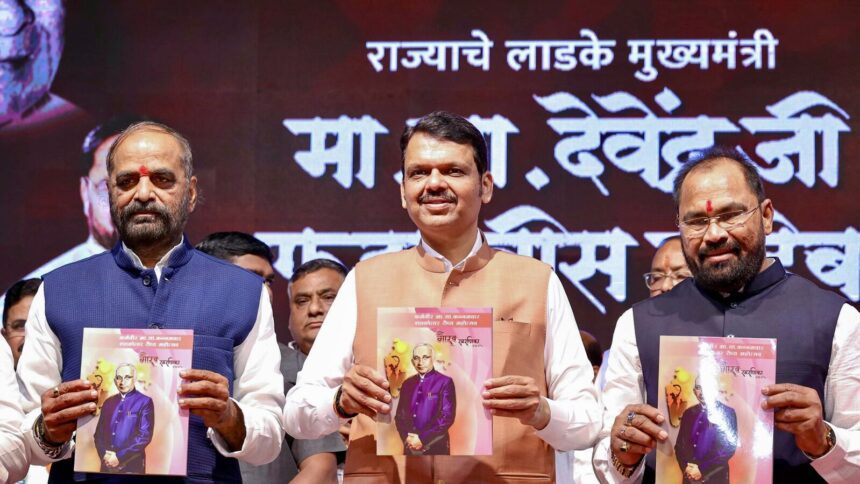Evolving Dynamics in Indian Politics: The Significance of Unexpected Alliances
As political landscapes shift and evolve, the fine lines between adversaries often blur, leading to surprising alliances that reshape public perceptions and electoral strategies. A recent example highlighting this phenomenon is the unexpected praise for the Rashtriya Swayamsevak Sangh (RSS) by Sharad Pawar, a prominent leader of the Nationalist Congress Party (NCP). This event has been notably addressed by Maharashtra Chief Minister Devendra Fadnavis, who remarked, “In politics, anything can happen.” Such developments require careful analysis in order to understand their implications within the broader context of Indian politics.
The Context: Sharad Pawar and the RSS
Sharad Pawar, a veteran politician respected for his deep understanding of India’s political fabric, has often been critical of the RSS, the ideological cornerstone of the ruling Bharatiya Janata Party (BJP). The recent shift — an acknowledgment of the RSS’s political acumen — indicates a strategic pivot that could potentially reverberate through Maharashtra’s political corridors and beyond.
Pawar’s praise appears to be a calculated move, possibly aimed at positioning himself and the NCP in the face of upcoming elections. By recognizing the RSS’s role in shaping public discourse and electoral strategies, Pawar is simultaneously signaling a willingness to engage constructively, potentially opening doors for future collaborations or at least reducing animosities.
Fadnavis’s Response: The Importance of Narrative
Chief Minister Devendra Fadnavis’s comments reflect an astute understanding of the current political landscape: the unpredictability of political allegiances and the necessity of controlling the narrative. By interpreting Pawar’s remarks as a sign of strategic intelligence rather than mere flattery, Fadnavis reinforces the idea that effective political maneuvering requires a nuanced understanding of allies and enemies.
Fadnavis’s acknowledgement of the RSS’s efforts to counter opposition narratives reveals a broader trend in Indian politics, where parties must navigate a complex web of relationships, lobbying, and public sentiment to maintain their footholds. The ability to adapt and recalibrate strategies in response to emerging narratives is crucial for any political leader.
Potential Implications: A New Era of Political Alignments?
The implications of Pawar’s praise and Fadnavis’s subsequent comments may signal a shift in alliances ahead of crucial elections. As political parties often rely on strategic partnerships to gain a competitive edge, this unexpected interaction could lead to new configurations within Maharashtra’s political framework.
-
Voter Sentiment: Pawar’s praise might resonate with voters who appreciate bipartisanship and dialogue. If executed thoughtfully, it could soften criticism of the RSS and broaden the NCP’s appeal among traditionally RSS-aligned voters.
-
Inter-Party Relations: Further engagement between the NCP and the RSS could redefine inter-party dynamics in Maharashtra, possibly influencing legislative decisions and governance styles.
- A Broader National Perspective: The shift might also inspire other regional leaders to explore alliances that transcend historical rivalries, shaping the future landscape of Indian politics leading up to national elections.
Conclusion: Navigating Complexity
As political scenarios evolve, the importance of understanding the motivations behind unexpected praise and alliances cannot be overstated. The comments from both Sharad Pawar and Devendra Fadnavis mark a pivotal moment in Maharashtra politics, one that emphasizes the fluid nature of political relationships.
Staying attuned to these developments is essential for anyone seeking to grasp the intricacies of Indian governance and electoral strategy. In a world where “anything can happen,” the ability to interpret and respond to such shifts will define the leaders of tomorrow—and the political decisions that impact millions. Thus, as we witness the unfolding narrative in Maharashtra and beyond, it becomes clear that today’s political complexities require a commitment to continuous observation and analysis. Knowledge is power, especially in an age where political tides can turn swiftly and unexpectedly.










